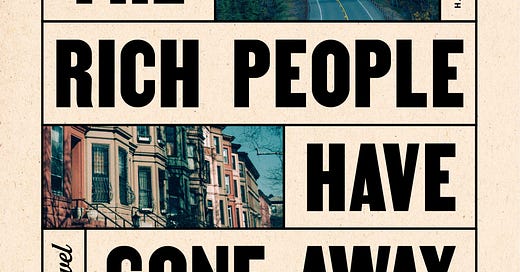Regina Porter’s debut novel The Travelers begins with a rapid chronicling of the life of James “Jimmy” Vincent, an Irish attorney whose life is bookmarked by varied iterations of the word “fuck.” Early on, his dad suggests it as an explanation for people’s mistakes and messes; in teenhood and early adulthood, it aligns with sex; by the time he makes pa…
© 2025 Roxane Gay
Substack is the home for great culture




